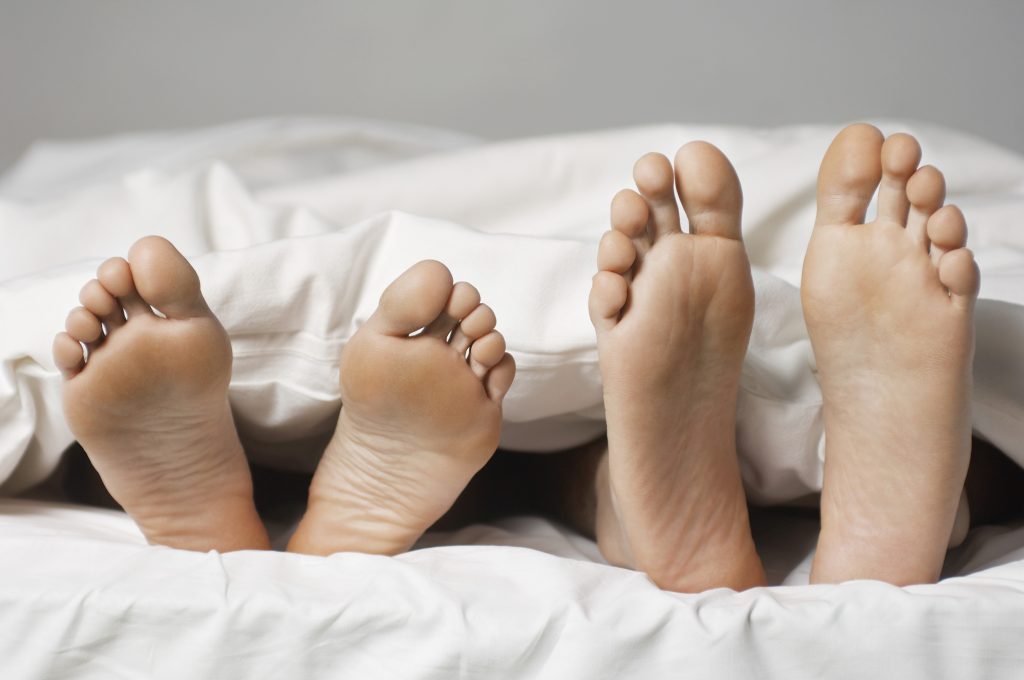
Decades of studies have proven that “throughout our adult years, intimacy is key to our well-being.” In this first of a two-part series, I would like to take a frank yet insightful look at how cancer and conventional cancer treatment may change a person’s experience of sex and intimacy on the physical and biological level.
Next week in Part 2, we will dive into some emotional aspects as well. In Part 2, we will also discuss how you (and your partner) can work through the confusing terrain of Breast Cancer and sexuality to come out with more insight and healing than ever before.
Physical Changes from Cancer
One of the symptoms of Breast Cancer growth can be low libido. Biologically, this may be caused by the same kinds of hormone imbalances that can fuel Breast Cancer and other reproductive cancers.
High levels of xeno-estrogens (aggressive estrogen chemical mimics) in the body can lead to lower levels of progesterone, testosterone and milder forms of estrogen. Xeno-estrogens can also raise stress hormones, which in turn can lower “feel good hormones,” such as dopamine, serotonin and oxytocin.
Low libido has also been linked to conditions that are risk factors for cancer, including depression, chronic stress, some autoimmune conditions, diabetes and other reproductive system conditions like fibroid tumors.
Physical Changes from Traditional Breast Cancer Therapies
If you are electing to receive conventional cancer treatment in addition to using natural health modalities, it is important to know that these treatments may exacerbate low sex drive as well. Here are just a few of the ways this can happen:
Sudden Onset Menopause (SOM) or Premature Menopause.
Many chemotherapy drugs can bring about a condition known as “sudden onset menopause” (SOM), or premature menopause. SOM is caused by a loss in ovarian function and can be triggered by Breast Cancer chemotherapy drugs such as cyclophosphamide, methotrexate, 5 fluorouracil and Taxol (Paclitaxel). Menopausal symptoms that affect intimacy, including pain or dryness during intercourse, intense fatigue and sudden drop in libido overall, can be quite shocking especially to young women going through Breast Cancer.
Lymphedema.
Lymphedema is the swelling of certain parts of the body because lymph fluid is not flowing properly. It is a common occurrence in the arms and sometimes the abdomens of women who have had lymph nodes removed or damaged because of Breast Cancer surgery or radiation. Lymphedema normally doesn’t cause issues with a woman’s libido directly. However, the pain, fatigue and emotional stress associated with it can definitely add to the mix to bring the mood down.
Fatigue.

Conventional cancer treatments, especially radiation and chemotherapy, inevitably can lead to a sense of general fatigue and tiredness during the course of treatment and for some time afterwards. At times, this fatigue can be severe and may be accompanied by nausea, vomiting, brain fog and general malaise as the immune system struggles to gain hold again. All of this can lead to lower sex drive in general, depression and even pain during intercourse.
Stress.
Stress in itself can be enough to put the brakes on intimacy. Biologically, stress ups cortisol levels, which can lower the production of naturally-occurring reproductive hormones, including progesterone. Also, especially for women, sex is an intensely emotional experience. A woman can develop stress responses during her cancer journey which can then lead to physical tension during intimacy as well.
Mastectomy and Lumpectomy.
Mastectomy is a surgical procedure where one or both of the breast are removed. A lumpectomy is when a part of a breast is removed. These procedure and their aftermath can affect intimacy in many ways. Obviously, physical pain during recoup time can stifle intimate connection. Once the wound is healed, a woman must then come to terms with the “new normal” of her body, and so must her partner. Feelings of shame, confusion and frustration can make way to confidence and even a deeper level of intimacy, but this takes time, inner work and communication. We will talk more about this Part 2 of this series.
How to Heal
The fact is that interest in sex waxes and wanes in general over the course of a woman’s life, whether or not she has cancer. A recent study found that nearly a third of women aged 18 through 59 suffer from low sex drive. It is perfectly normal for you to experience a lack of interest in sex at some point on your Healthy Breast journey.
It may help a little to know that you are not alone. I also know, however, that all of the knowledge and support in the world may not completely resolve the feelings of frustration, shame, confusion and even resentment that may arise in you and around your partner in light of these circumstances.
Dealing with and healing through the emotional ups and down of intimacy and Breast Cancer takes time and the right tools for communication and healing. This will be the subject of the next article, so be sure to tune in!
Dr. Veronique Desaulniers (“Dr. V”) is the founder of Breast Cancer Conqueror.com and The 7 Essentials System ™. This step-by-step guide empowers you with knowledge so you Never Have to Fear Breast Cancer Again! To watch a FREE webinar about the 7 steps for beating breast cancer naturally, Click Here